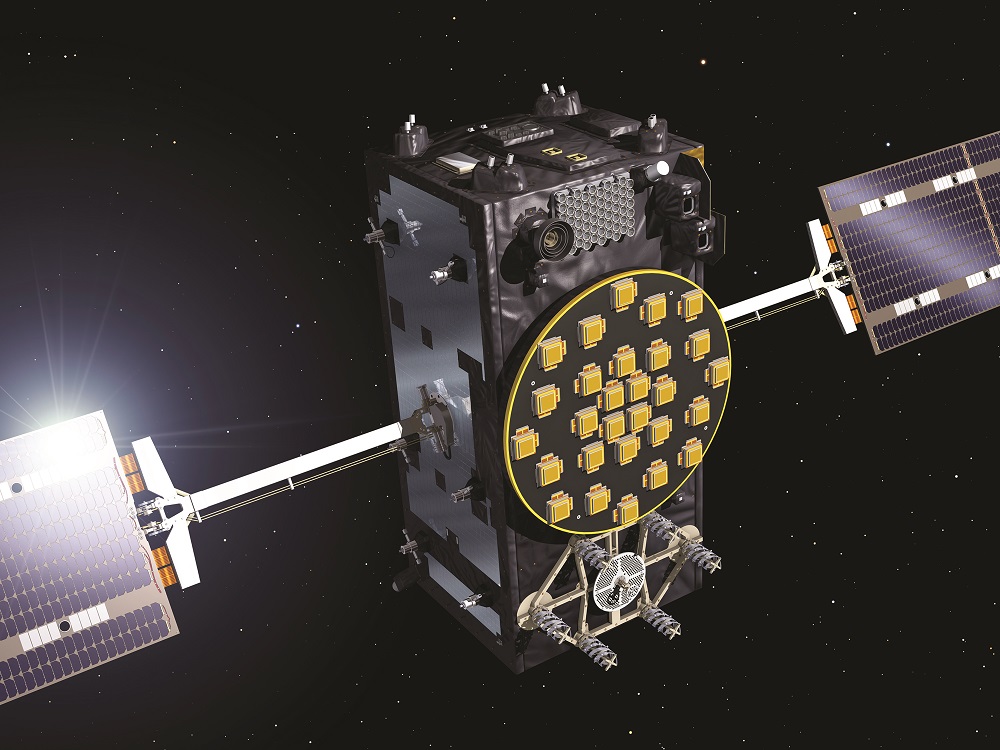WASHINGTON — The British government, seeking a replacement for the Galileo satellite navigation system, said it will consider alternatives to an original plan to develop its own satellite constellation.
In a Sept. 24 statement, the British government’s Department for Business, Energy and Industrial Strategy said an ongoing study to examine the feasibility of a U.K. Global Navigation Satellite System (GNSS) will shift to one that will look at “new and alternative ways” of providing those services.
The new Space-Based Positioning Navigation and Timing Programme (SBPP) will “consider newer, more innovative ideas of delivering global ‘sat nav’ and secure satellite services to meet public, government and industry needs,” the department announced in its statement.
The U.K. GNSS effort started in 2018 when the British government failed to reach an agreement with the European Union about continued participation in the E.U.’s Galileo satellite navigation program once Britain leaves the E.U. Without an agreement, the British government would not have access to Galileo’s more secure navigation service, and would not be able to participate in development and operation of the system. However, it would have access to the free Galileo services, similar to those provided by the American GPS system and similar ones operated by China and Russia.
The concept of a British satellite navigation system got a skeptical reception within Britain. While the country’s space industry has the capabilities to build navigation satellites, the high cost of even a modest satellite navigation system, estimated by outside experts at several billion dollars, raised doubts that it would be viable.
The announcement didn’t disclose details of alternative approaches the British government is pursuing. However, it suggested it would include OneWeb, the low Earth orbit broadband megaconstellation that the government, along with Indian company Bharti Global, is acquiring from bankruptcy. It also opened the door for cooperation with international partners.
“Through our Space-Based Positioning Navigation and Timing Programme, we will draw on the strengths of the UK’s already thriving space industry to understand our requirements for a robust and secure satellite navigation system,” Business Secretary Alok Sharma said in a statement. “This includes considering low orbiting satellites that could deliver considerable benefits to people and businesses right across the UK, while potentially reducing our dependency on foreign satellite systems.”
The British government’s interest in OneWeb has long been associated with its planning for a satellite navigation system. However, using OneWeb for navigation would not be a straightforward approach. The company’s constellation will operate in low Earth orbit, rather than the medium Earth orbits used by Galileo, GPS and other navigation systems, and will operate at a different frequency than those traditionally used for navigation.
Any use of OneWeb for satellite navigation is unlikely to involve the current generation of satellites being built, if those satellites require modifications to provide navigation services. OneWeb announced Sept. 21 a revised contract with Arianespace to resume launches of its satellites using 16 Soyuz rockets over a two-year period starting in December. The company halted launches of the satellites when it filed for Chapter 11 bankruptcy in March.
OneWeb, in a tweet after the British government announcement, said it welcomed the new study and “stands ready to work with partners to develop [position, navigation and timing] solutions across a global footprint for the U.K. and partners.”
The British government did not provide a schedule for completing the SBPP study. The original U.K. GNSS study, for which the British government allocated £92 million ($117 million), will formally end Sept. 30.
